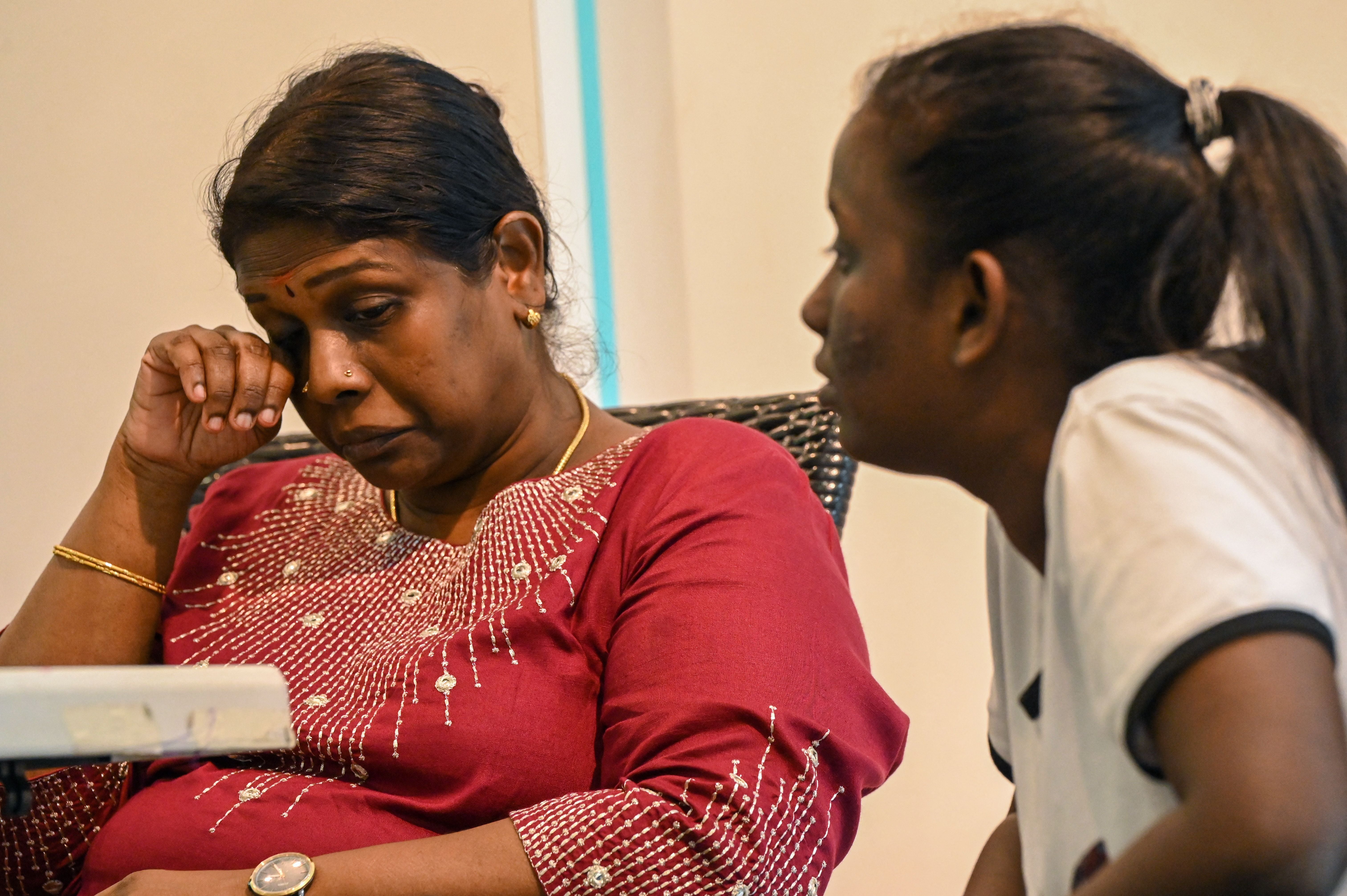‘No mercy, no justice,’ says family of man hanged by Singapore over 1kg cannabis
‘We asked for so little – just for his life to be spared, his case to be re-opened’

The family of a man who was executed in Singapore for conspiring to traffic just a kilogramme of cannabis has lashed out at the country’s government and said it showed “no mercy” despite their years-long struggle to relieve him of the charges.
Tangaraju Suppiah had languished in jail since 2014 before becoming the first person to be hanged this year by Singapore for the alleged offence.
The 46-year-old was sentenced to capital punishment in 2018 for being involved in a conspiracy to coordinate the delivery of a package of 1,017.9g of cannabis in 2014.
He was hanged in Changi prison in the early hours of Wednesday and his death certificate was handed to his family, said the country’s officials.
Singapore has often been criticised for meting out harsh punishments for simple offences and has continually faced calls to do away with capital punishment altogether.
In a statement after the punishment was carried out, Suppiah’s family condemned Singapore’s authorities for not reopening his case.
“Despite all our efforts, our struggle over the past many years for my brother to get a fair hearing, the [Singapore] government has shown no mercy. So many – regular people, human rights groups, overseas politicians and the EU delegation to Singapore – have raised their voice,” Suppiah’s family members told The Independent.
They added that the pleas underlined how it is “unsafe to execute someone based on such flimsy evidence”, but the authorities still went ahead.
“So many questions remain unanswered. He didn’t get justice. We asked for so little – just for his life to be spared, his case to be re-opened. But they didn’t even seriously consider our pleas. There’s really no mercy,” they said in a statement.
The capital punishment led activists to again call out Singapore’s strict anti-drug trafficking laws that have resulted in a dozen hangings by the administration since March last year.
“Tangaraju’s execution is a travesty. His death at the hands of the state will only lead to increased opposition to the death penalty in Singapore, inspiring more people to call for the abolition of this cruel and ineffective practice,” said Maya Foa, director at Reprieve, a legal action non-profit organisation that advocates against the death penalty.
She said that while Singapore claims it affords “due process” to people on death row, “in reality fair trial violations in capital punishment cases are the norm: defendants are being left without legal representation when faced with imminent execution, as lawyers who take such cases are intimidated and harassed”.
“Singapore is becoming isolated in its inhumanity, called out once again by the United Nations, while neighbouring countries receive praise around the world for their progressive reforms,” Ms Foa said.
Family members have claimed their repeated requests to give Suppiah another chance were not taken up by Singapore’s officials.
Relatives and activists had sent letters to Singapore president Halimah Yacob to plead for clemency. His niece and nephew also filmed an appeal to the public to seek help in stopping the government from carrying out the execution.
On Tuesday, the UN Human Rights Office urged Singapore in an eleventh-hour appeal to not proceed with the hanging.
The UN tried to point out that imposing the death penalty for drug offences is incompatible with international norms and standards.
“Countries that have not yet abolished the death penalty may only impose it for the ‘most serious crimes’, which is interpreted as crimes of extreme gravity involving intentional killing,” the UN Human Rights Office said in a statement.
“We call on the Singapore government to adopt a formal moratorium on executions for drug-related offences and to ensure the right to a fair trial for all defendants in line with its international obligations,” it said.
Suppiah was arrested in March 2014 after Singapore’s Central Narcotics Bureau arrested two men they believed were connected to him.
Prior to his arrest in this case, Suppiah was arrested in a separate drug consumption case and was out to report to the police for a routine urine test he had missed when he was detained by authorities.
The court found him to be the owner of two phone numbers used by the contact drug delivery man and the prosecution had said he was one of the intended recipients of the parcel.
Suppiah, however, told the court he lost his phone in August 2013 and it was possible someone else may have taken his phone and contacted one of the arrested men.
Last year, Singapore had carried out another widely condemned death penalty – that of a man with a mental disability.
The island-state’s harsh stance on the death penalty for drugs is in sharp contrast with its neighbours, especially Malaysia, which ended a mandatory death penalty for serious crimes and recently decided to water down similar legislations on drug-related offences.
Subscribe to Independent Premium to bookmark this article
Want to bookmark your favourite articles and stories to read or reference later? Start your Independent Premium subscription today.

Join our commenting forum
Join thought-provoking conversations, follow other Independent readers and see their replies